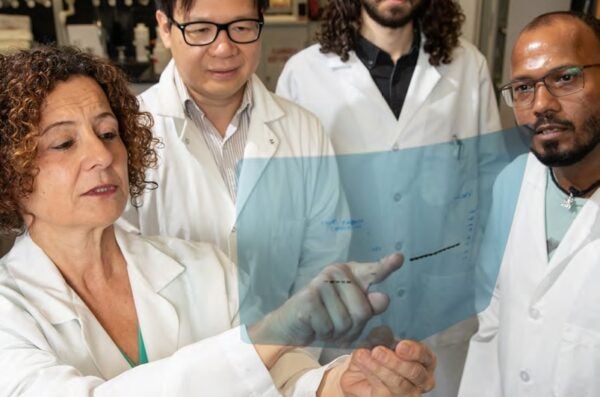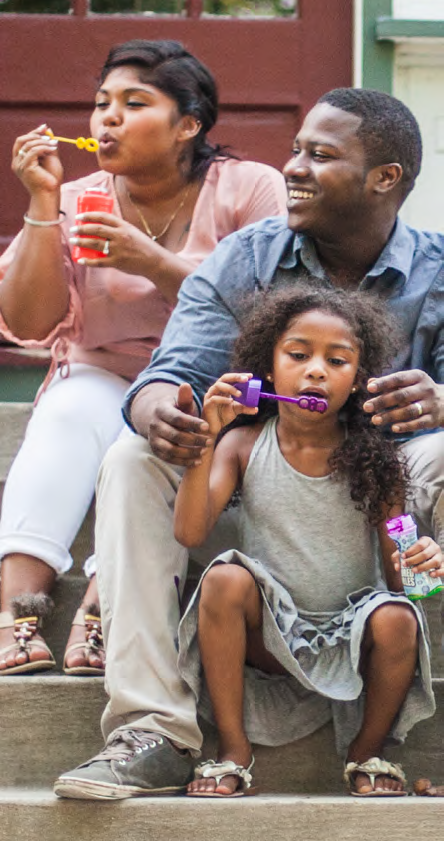Why UIC
Health Equity is in our DNA
The belief that all people should have access to the best possible medical treatments permeates everything we do at UIC and UI Health. Finding these treatments and helping patients overcome barriers to care is central to UIC’s and UI Health’s missions. Our world-class researchers are deeply committed to those missions and the people they aim to help.
Our unique, interdisciplinary health care ecosystem is designed to provide comprehensive care to people in Illinois, regardless of background or circumstance. That’s significant, because many of our patients live in the poorest areas of Cook County, where residents are 30% more likely to live in poverty and 20% more likely to be uninsured compared to national averages.
Our clinical and academic research faculty make choices based on exceptional science and how their decisions might affect health outcomes for underserved populations. Our faculty asks:
Is this disease more common in certain people because of differences in genetics or differences in social structure and lifestyle?
How will the treatment, prevention or screening technology we’re working on address or account for those differences?
Our patients and network of community partners offer input that shapes answers to these questions. Their insights and feedback directly affect what drugs we develop and how we design models for delivering health care.
UIC Has What it Takes
Research Powerhouse
In 2023, UIC researchers were awarded more than $500 million in grants, including more than $200 million from the National Institutes of Health (NIH). Much of that funding supports outstanding drug development and cancer research in the UICentre, Cancer Center, Retzky College of Pharmacy and College of Liberal Arts and Sciences’ department of chemistry.
researchers

More than 40% of UIC’s faculty and staff are non-white.
Expert Faculty
Powered by expert UIC faculty, the University of Illinois Hospital & Health Sciences System (UI Health) is the university’s academic health enterprise, which integrates the activity of UIC’s seven health sciences colleges, a tertiary care hospital, more than 40 care locations, including 11 Federally Qualified Health 1 Clinics, and the University of Illinois Cancer Center, which has been invited to apply for a highly Hospital recognized National Cancer Institute designation. UI Health’s interdisciplinary ecosystem of health care is dedicated to providing exceptional care to all patients, regardless of income or insurance status. Unlike many peer academic health systems, UI Health never turns away a patient.
$500 million
UIC Has What it Takes
Drug Development Support
UIC created the UICentre to support drug development across the university. UICentre has dedicated chemists and biologists who support researchers in narrowing down and identifying potential drug targets and therapeutic compounds. Closely affiliated with the Retzky College of Pharmacy, the UICentre provides seed funding to promising projects.
Diversity
UIC is one of the nation’s most diverse public research institutions. It is a Federally designated Minority Serving Institution (MSI), Asian American and Native American Pacific Islander-Serving Institution (AANAPISI) and Hispanic-Serving Institution (HSI). In addition, more than 40% of its faculty and staff are non-white. UIC’s diversity fosters a robust exchange of ideas. And because scientists’ lived experiences matter, campus diversity helps ensure health equity is a priority in research.
Trusted Community Relationships
UIC has long-standing, trusted relationships with organizations and people in its surrounding areas. These relationships are essential to finding equitable health solutions.
Community Needs Come First, Always

Meaningful improvements in health equity can’t happen when researchers work alone. True progress requires partnerships with residents of underserved communities at every stage of medical research.
This idea is familiar to UI Health. For more than 50 years, our researchers have actively engaged with community partners. We work with them on everything from identifying research goals to designing clinical trials that account for and respect patients’ cultures, lifestyles and socioeconomic needs.
Our approach has been held up as a model for other drug development and cancer research programs worldwide. It has also earned us the trust and respect of our neighbors in the communities we serve.
We have the numbers to show it:
- The Cancer Center’s clinical trials are among the most diverse and inclusive in the world, with 79 % of participants being non-white.
- 80% of Chicago-area residents living with sickle cell disease, a condition affecting primarily Black people, are treated at UI Health.
- 1.3 million people receive health care services from UI Health each year, many of whom are uninsured, underinsured or on Medicaid.